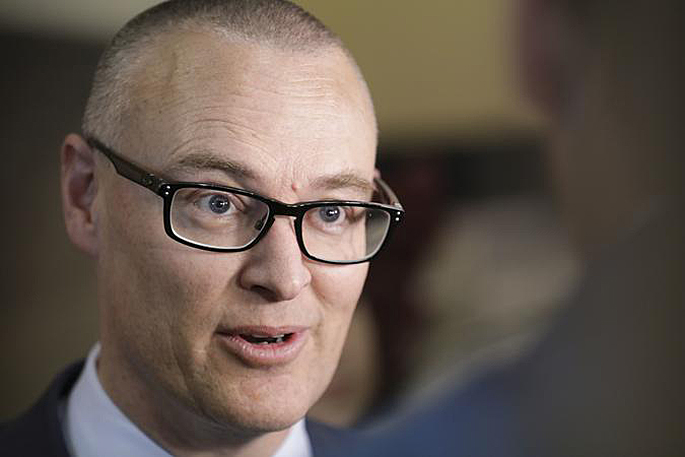More than 100,000 health workers are owed about half a billion dollars for payroll breaches, but they may have to wait up to two years to get paid.
District Health Boards have revealed they owe $550-650 million to cover mistakes made since 2010 in leave and shift allowance pay under the Holidays Act.
Costs of the Holidays Pay Act provision were highest for Waitemata and Auckland DHBs, at $119m and $113m respectively, according to the draft data.
The total bill dwarfs the Holidays Act payouts already made or being made by police, Corrections, the Ministry of Business, Innovation and Employment, and other public and private sector employers.
Arrears have cost police more than $45m since late 2015, and Corrections $16m.
Health Minister David Clark said it would take up to two years for people to get paid.
He said staff had been "short-changed over many years. But this government is putting things right".
"Many organisations have been dealing with the issue of how to identify and rectify Holidays Act non-compliance, but in health the National government did nothing."
But National's health spokesperson Michael Woodhouse said deficits had been rapidly increasing over the past year.
"Dr Clark has let deficits balloon to record highs because the government has neither provided the funding they claimed they would nor set expectations for continued fiscal discipline."
The Holidays Act has been criticised for being unwieldy and is being overhauled.
The DHB also face having to overhaul their payroll systems, to comply with whatever legislative changes are made.
Dr Clark said DHBs recently reached agreement with health unions on the method DHBs will use to achieve compliance with the Holidays Act 2003. He said it is possible that further costs related to the Act will affect the past financial year before it is finalised, but any liability not recognised in 2018-19 would affect this financial year.
A billion-dollar deficit
The boards' payroll arrears make up more than half of the overall public health sector deficit of $1.081 billion.
The latest financial details for the DHB sector were released this afternoon by Dr Clark.
Two other one-off costs - $32 million for strikes by junior doctors this year, and $44m for "the impairment" or scaling back of the National Oracle Solution IT project - made up $666 million in one-off items. These contributed to the draft sector-wide deficit of $1.081 billion for the year ended June.
Dr Clark said the cost of these items was not included in the 2018-19 Budget. Excluding these costs, the underlying DHB sector result was a $415 million deficit, against a $340m budget, or a $75m (22 percent) deficit.
The Canterbury DHB recorded a net result excluding one-off costs of $103m in deficit - $5m worse than budgeted. Waikato DHB was $23m worse than budget on $79m. Southern DHB ended the year $44m in deficit, and Counties Manukau $41m in deficit.
Four DHBs - Counties Manukau, Hutt Valley, Northland and Waitemata - did better than budget, but still ended the year in deficit.
Personnel costs were $87m over budget across 13 DHBs. $93m more than budget was spent on outsourced personnel across 18 DHBs with the highest variances at Auckland and Waikato.
Outsourced clinical services costs were $30m over budget across 15 DHBs, with the largest blowouts partly attributed to outsourced radiology, extra MRI work to meet targets and extra elective surgery.
The costs associated with the strike by members of the Resident Doctors Association were biggest at Wellington's Capital and Coast DHB, which does a lot of teaching and therefore has a significant number of junior doctors, costing $7.2m, according to draft year-end results. Auckland DHB's RDA strike cost was next on $5.4m.



0 comments
Leave a Comment
You must be logged in to make a comment.